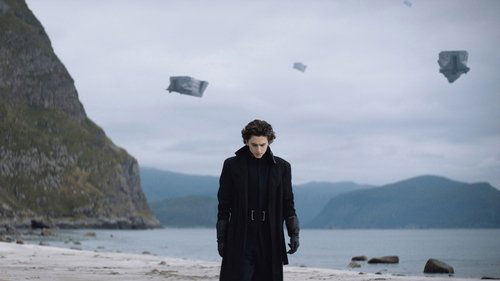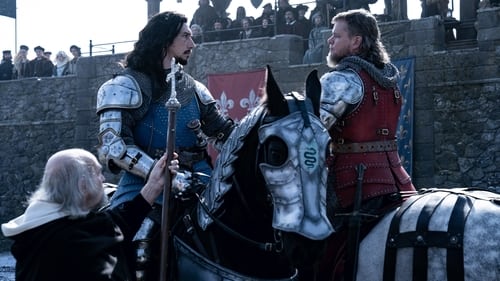Informações
Sinopse:
Duração: 01h11m
Data de lançamento: 02 de setembro de 2003
Genêros: Animação, Comédia, Família.
(5 votos)
?
?

Sinopse:
Duração: 01h11m
Data de lançamento: 02 de setembro de 2003
Genêros: Animação, Comédia, Família.

Dans son premier one man show, Arrête ton cinéma!, rodé au quart de tour, il explose au propre comme au figuré. Qu’il amène les spectateurs au Maroc, dans un club ou dans un avion, il hypnotise son public. C’est toute une « sensation ». Ce spectacle est en tournée au Québec depuis l’automne 2007. À ce jour, plus de 330 000 personnes l’ont applaudi.

Em um futuro distante, planetas são comandados por casas nobres que fazem parte de um império feudal intergalático. Paul Atreides é um jovem cuja família toma o controle do planeta deserto Arrakis, também conhecido como Duna. A única fonte da especiaria Melange, a substância mais importante do cosmos, Arrakis se mostra ser um planeta nem um pouco fácil de governar.

História sobre o duelo entre o cavaleiro Jean de Carrouges e o escudeiro Jaques Le Gris, acusado de ter violado a esposa do cavaleiro. A luta, estabelecida pelo próprio rei da França, Carlos VI, marca o grande drama de vingança e crime do século XIV, que tem a esperança de ser resolvido somente após o combate.

Uma história perversa sobre privilégio e desejo. Lutando para encontrar seu lugar na Faculdade de Oxford, o aluno Oliver Quick é atraído para o mundo do encantador e aristocrata Felix Catton, que o convida para Saltburn, a enorme mansão de sua família excêntrica, para passar um verão inesquecível.

A jornada de Paul Atreides continua. Ele está determinado a buscar vingança contra aqueles que destruíram sua família e seu lar. Com a ajuda de Chani e dos Fremen, ele embarca em uma jornada espiritual, mística e marcial. Se torna Muad'Dib, o líder messiânico dos Fremen, enquanto luta para evitar um futuro sombrio que ele testemunhou em visões. No entanto, suas ações inadvertidamente desencadeiam uma Guerra Santa em seu nome, que se espalha pelo universo conhecido. Enquanto enfrenta escolhas difíceis entre o amor por Chani e o destino de seu povo, Paul precisa usar suas habilidades e conhecimentos para evitar o terrível futuro que previu.

O filme mostra a iniciação sexual de Roger um menino de 16 anos que passa férias em uma mansão cheia de mulheres.

Anora, uma jovem profissional do sexo que trabalha nas noites do Brooklyn, pode se tornar a Cinderela da sua própria história quando encontra e casa, por impulso, com o filho de um oligarca russo. Mas quando a notícia chega à Rússia, seu conto de fadas fica ameaçado com a chegada dos pais dele a Nova York para cancelar o casamento.

Após ser traída por Bill e seu antigo grupo, a Noiva assassina fica à beira da morte por 4 anos. Após despertar do coma, ela vai atrás de cada um dos seus antigos companheiros para matá-los. Na segunda parte dessa busca por vingança, a noiva vai continuar sua procura por Bill, atacando os últimos dois sobreviventes do grupo: Budd e Elle Driver . O confronto com seu antigo mestre, e mandante da sua morte, vai revelar novas surpresas para a assassina.